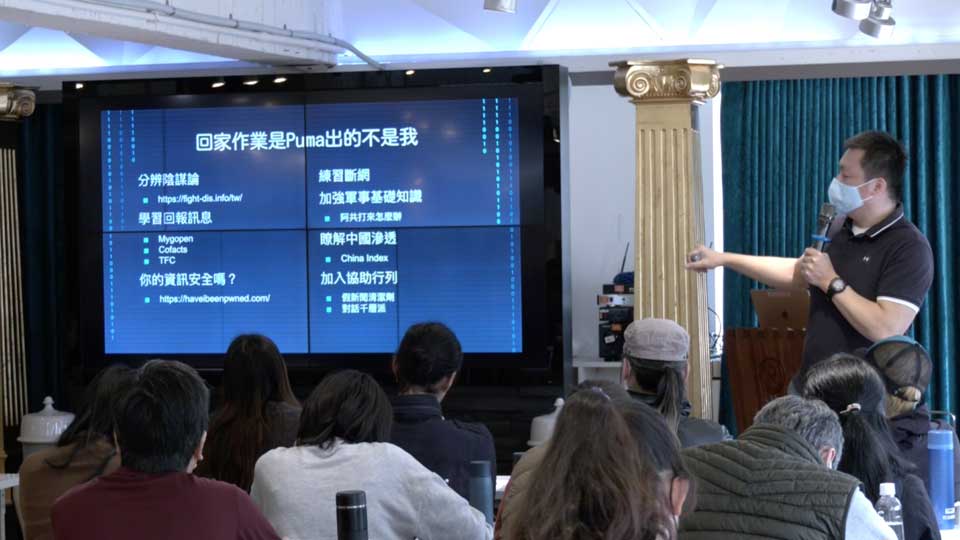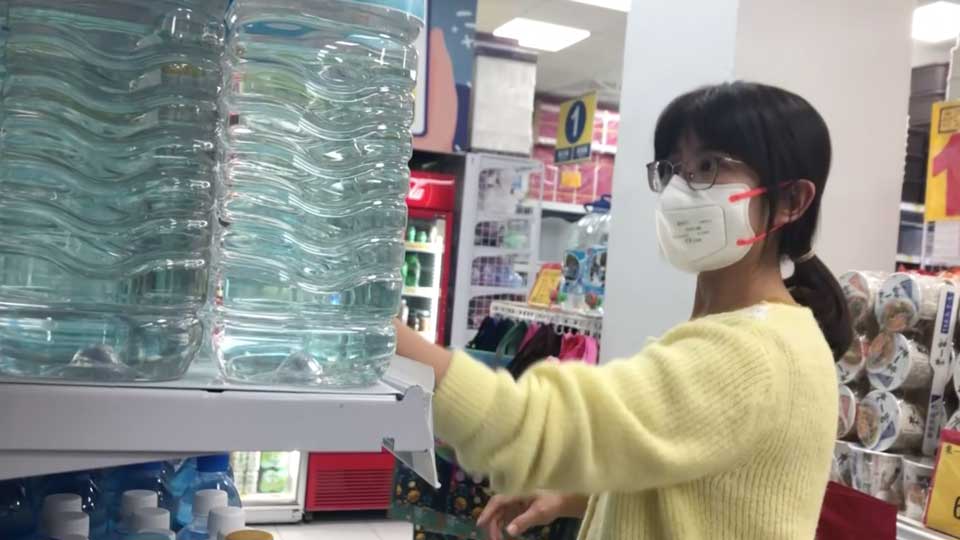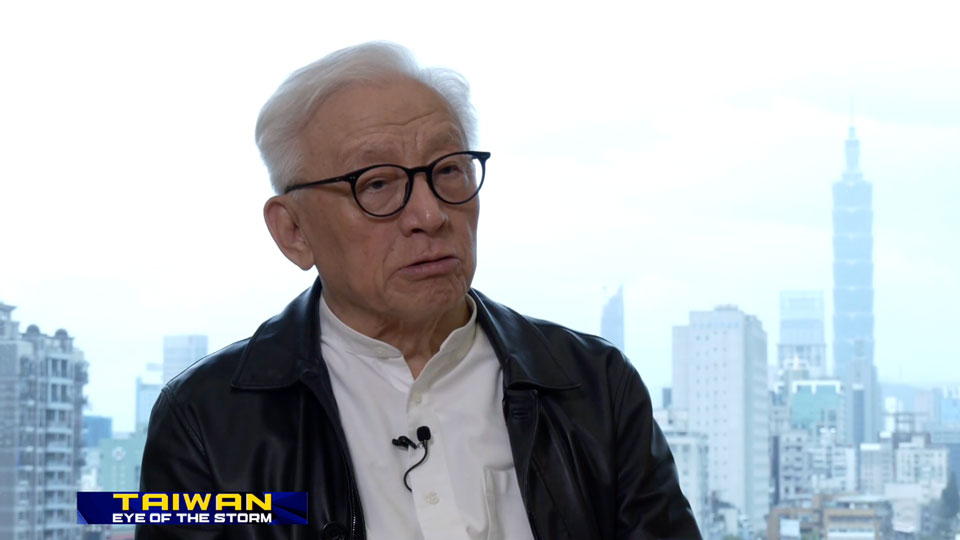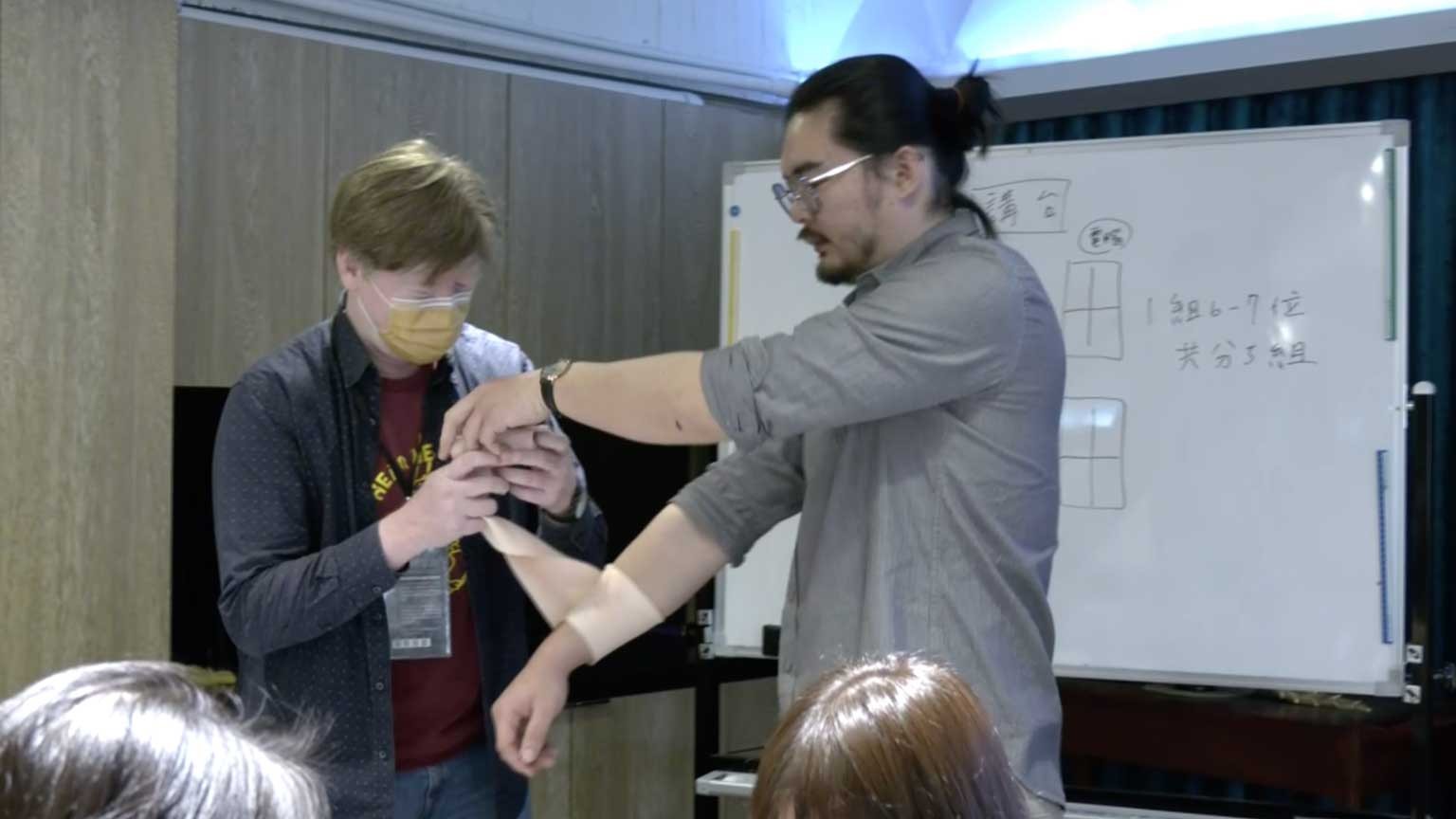It's a Sunday afternoon in Kaoshiung, Taiwan, and a group of people are learning how to apply bandages to stop someone from bleeding to death. They also learn what they have to do to prepare for an emergency, how to carry a person who is injured, and how to identify disinformation on the internet and combat cognitive warfare. Later in the lesson, the instructor indicates on a map where Chinese troops would likely land if they were to invade mainly sandy beaches with easy terrain and few reefs.
Kuma Academy, a company run by security specialists, began offering the classes last September and a spokesperson says the slots typically sell out within minutes on going on sale.
The company offers a range of courses, including how to safely flee a battle zone and evacuate quickly if China attacks. The goal is to help people protect themselves and avoid panicking if the moment ever comes.
A survey conducted by a Taiwan think tank at the end of February found that 51 percent of respondents were concerned about a possible Chinese invasion, while 43 percent responded they were not.
Marco Ho, the CEO of Kuma Academy, says, "We've lived here for 70 years without war, so people can hardly imagine what it would be like, and they aren't ready. We have to open our eyes to the threat."
One of his students, a 49-year-old man, says Taiwan has always had the threat of invasion hanging over it. But in the past few years, it's become impossible to ignore.

The classes have proven popular with expats from Hong Kong, too. China's crackdown on the 2019 pro-democracy protests back home heightened their sense of danger.
A 38-year-old doctor and mother of two, who asked that her name not be published, said she signed up because she wanted to be better prepared to protect her children.
China's regular incursions into Taiwanese airspace made her apprehensive. "And when I saw Ukrainian families being separated on the news, I felt I had to do more to safeguard my family," she says.

On her way home after the lesson, she loaded up on essentials such as drinking water, heat-retaining rain gear and multi-function knives. She says this is the first time she has taken seriously the idea that China might attack.
She says she's also concerned about how the rising tensions will affect her children.
"Mothers like me are worried that the stress we all feel from China's provocations will impact them. Right now, my goal is to get a better understanding of the situation we face," she says.
The fear isn't just at an individual level. Some companies are trying to reduce their dependence on China, shifting their investments from the mainland to Southeast Asia.
Robert Tsao, the billionaire former chairman of Taiwan semiconductor giant UMC, announced last year he would provide 100 million US dollars from his private fund to strengthen Taiwan's civil defense capabilities. One of the beneficiaries is Kuma Academy.

UMC has several chip factories in China, and the 75-year-old was known to have close ties with Beijing, but he shifted gears after the crackdown on Hong Kong. He says he doesn't want Taiwan to go the same way.
"I think all Taiwanese should understand that keeping Taiwan a free economy is so vital for their future," he says. "Because if Taiwan is going to be merged to China, it will be a very big problem for the free world."
The fear of war is palpable at all strata of Taiwanese society, and an increas-ing number of people are taking proactive measures to protect themselves.
The possibility of war is slowly becoming a palpable fear in Taiwanese society, and more people are taking proactive measures to protect themselves.

